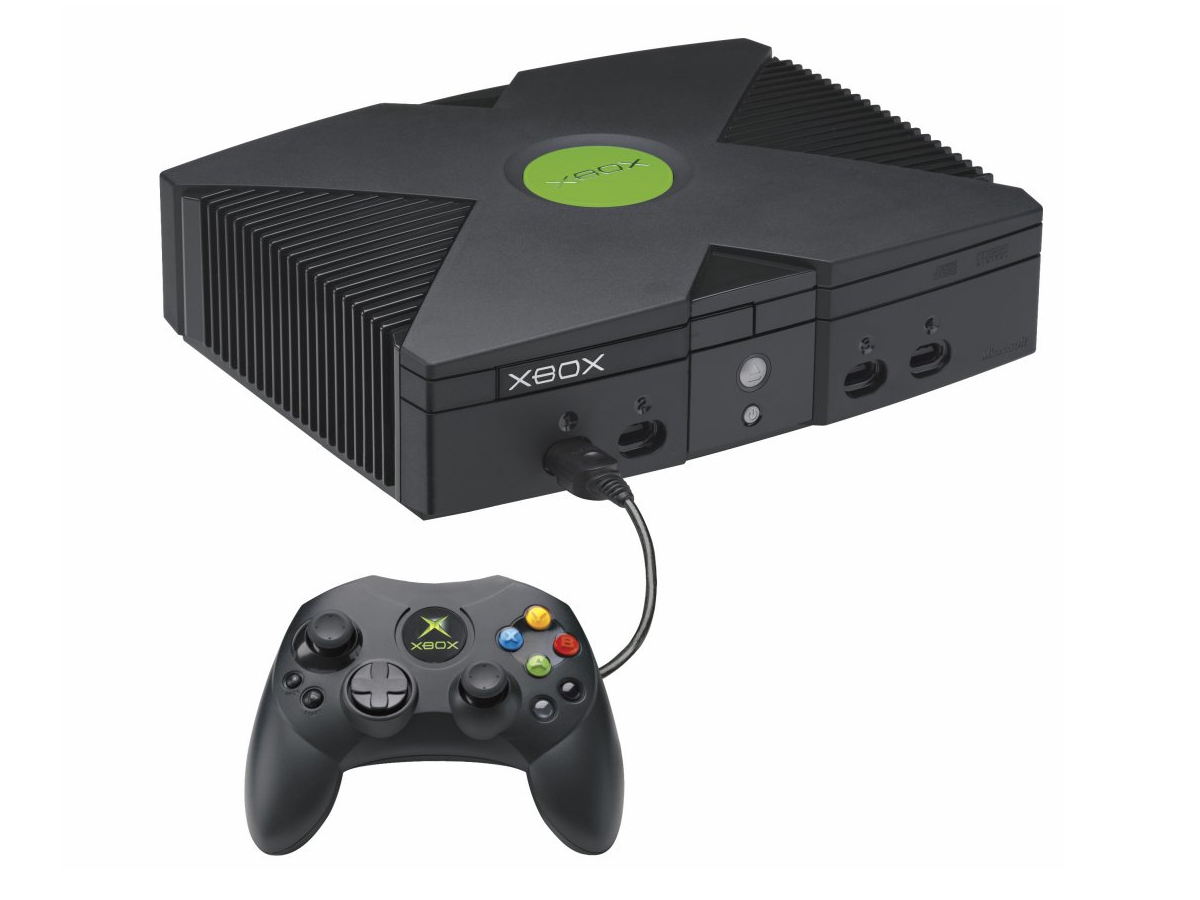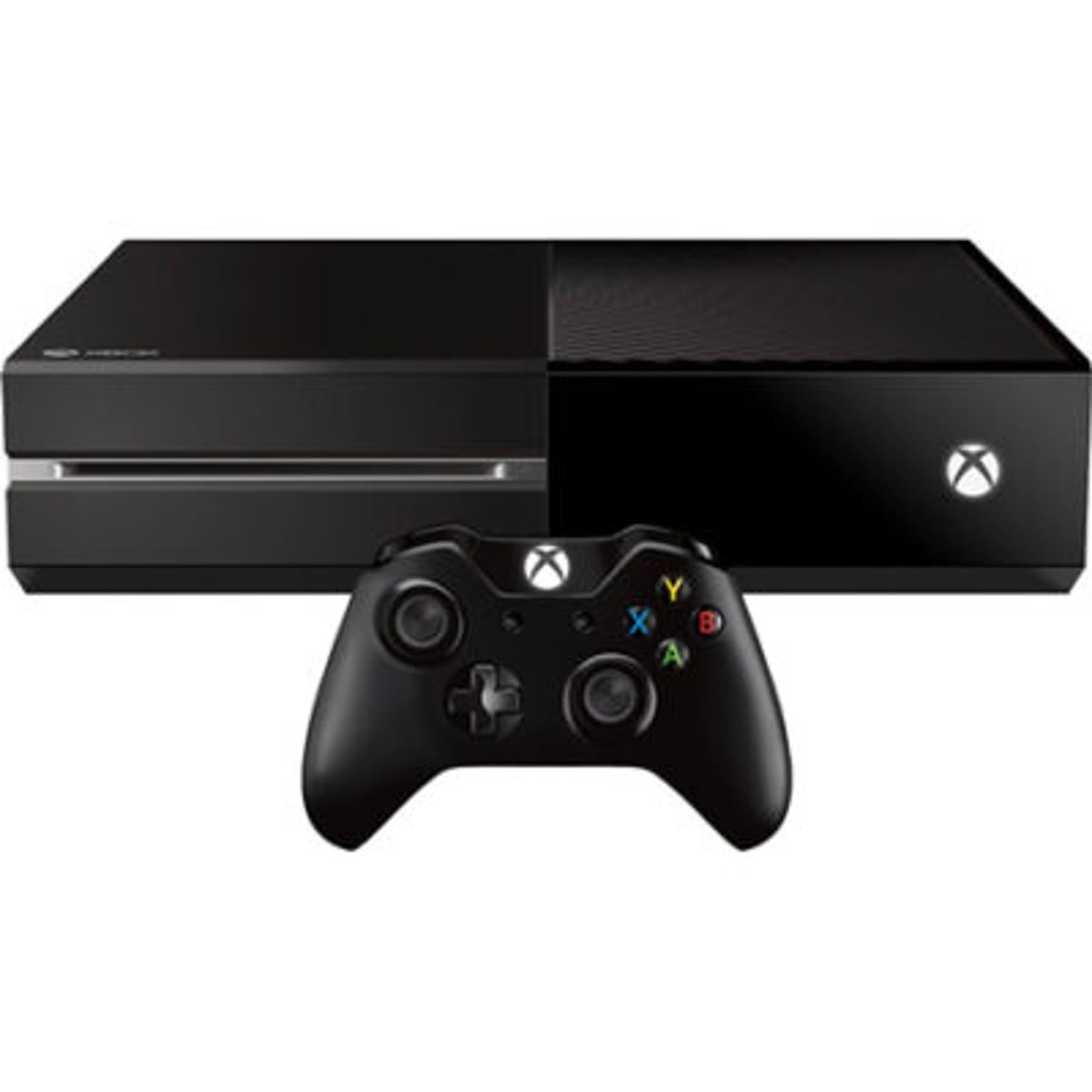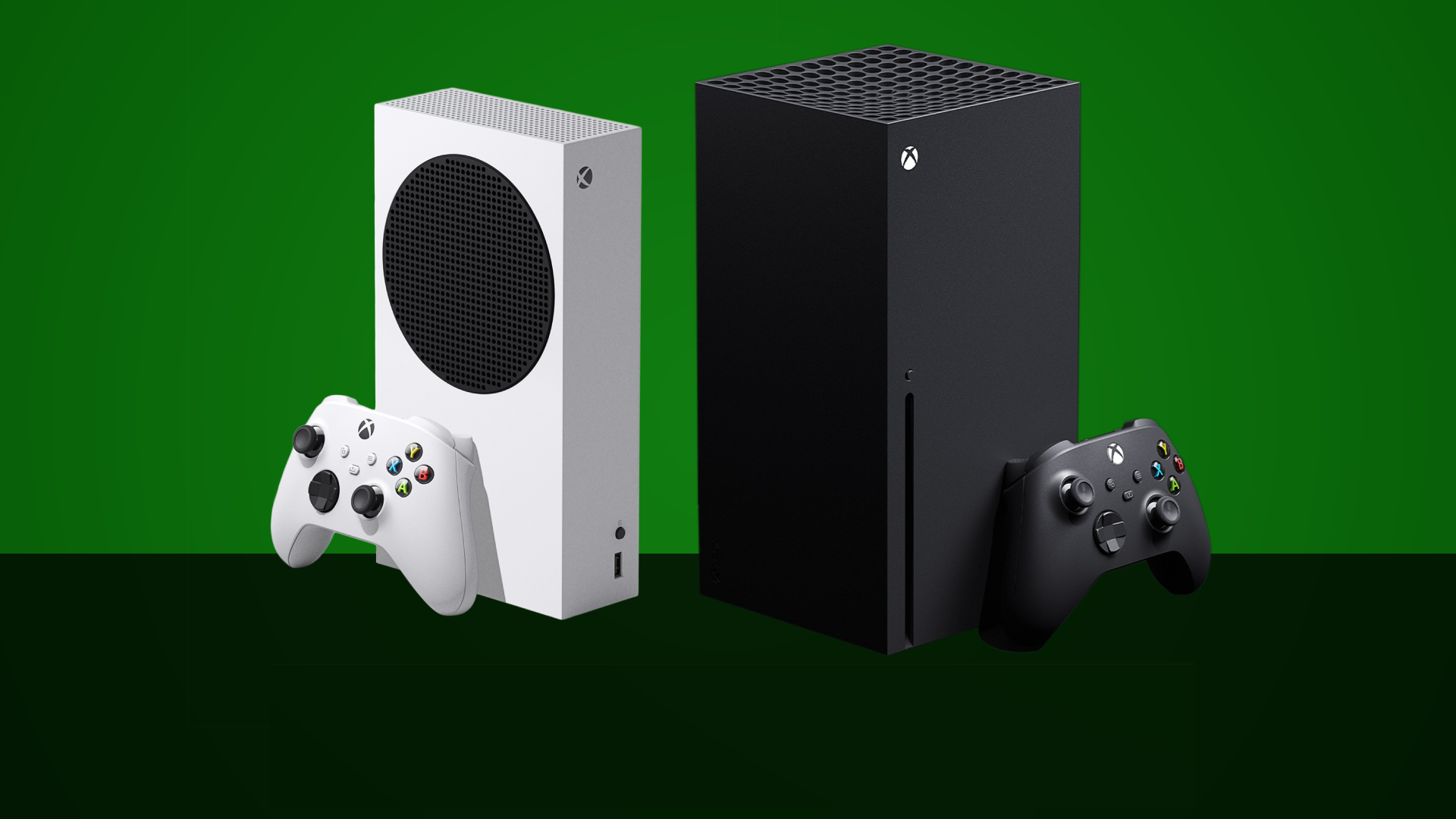Introduction
In the vast and ever-evolving landscape of gaming, few names elicit as much excitement and nostalgia as Xbox. Microsoft’s journey into the gaming console market commenced with the launch of the Original Xbox in 2001, setting the stage for a series of groundbreaking consoles that have significantly shaped the gaming industry. From the humble beginnings of the first Xbox to the cutting-edge technology of the Xbox Series X|S, this blog will take you on an immersive journey through the evolution of Xbox consoles, delving into the innovations, iconic games, and profound cultural impact that each generation has brought.

The Original Xbox (2001): A Bold Entry into the Gaming Market
The year 2001 marked a pivotal moment for the gaming industry as Microsoft unveiled its first gaming console, the original Xbox. This daring move challenged the dominant position of Sony’s PlayStation and Nintendo’s consoles, establishing Microsoft as a formidable competitor in the gaming space. The original Xbox was a powerful machine for its time, sporting PC-like hardware and a Pentium III processor, which enabled it to deliver impressive graphics and gameplay experiences.
Microsoft’s ambition to conquer the online gaming world came to fruition with the introduction of Xbox Live, a revolutionary online gaming platform. Xbox Live allowed players to connect with friends, engage in multiplayer matches, and download exclusive content, fundamentally altering the way console gamers interacted with each other and the gaming world.
Xbox 360 (2005): Redefining the Gaming Experience

Building on the success of the original Xbox, Microsoft launched the Xbox 360 in 2005, a console that would define the seventh generation of gaming. The Xbox 360 was a leap forward in gaming technology, introducing high-definition graphics, wireless controllers, and robust online capabilities. The Xbox 360’s online service, Xbox Live, reached new heights, transforming multiplayer gaming by creating a dynamic and interconnected community of players.
The success of the Xbox 360 can largely be attributed to its stellar lineup of exclusive titles, including the iconic “Halo” series, the gritty “Gears of War” franchise, and the high-octane racing simulator “Forza Motorsport.” These games not only showcased the capabilities of the console but also cemented Xbox’s position as a gaming platform that could deliver unparalleled experiences.
Xbox One (2013): A Controversial Start to the Eighth Generation

In 2013, Microsoft launched the Xbox One, marking the beginning of the eighth generation of gaming consoles. Despite considerable excitement, the initial reception was marred by controversy. Microsoft initially positioned the Xbox One as an all-in-one entertainment system, putting a significant emphasis on media capabilities and features like TV integration and voice commands.
This approach, however, alienated the core gaming community, who felt that Microsoft was neglecting their primary interests. In response to the backlash, Microsoft shifted gears and focused on enhancing the gaming experience. With updates and policy changes, the Xbox One gradually regained the trust of gamers.
One of the standout features of the Xbox One was the introduction of Xbox Game Pass. This subscription service offered access to a vast library of games for a monthly fee, representing a significant shift in how games were consumed and unlocking new possibilities for players.
Xbox One X (2017): The Most Powerful Console of Its Time

In 2017, Microsoft released the Xbox One X, which stood as a testament to the company’s commitment to pushing the boundaries of gaming technology. Marketed as “the most powerful console ever,” the Xbox One X boasted an impressive 6 teraflops of graphical processing power, allowing for true 4K gaming experiences.
One of the standout features of the Xbox One X was its dedication to backward compatibility. Microsoft’s efforts to ensure that Xbox 360 and even some original Xbox titles were playable on the new console not only appealed to long-time fans but also showcased the company’s commitment to preserving gaming history.
The Xbox One X also highlighted Microsoft’s dedication to embracing gaming as an inclusive medium. The Xbox Adaptive Controller, released in 2018, was a groundbreaking step in accessibility, designed to make gaming more accessible to players with limited mobility.
Xbox Series X|S (2020): The Dawn of the Ninth Generation
The year 2020 marked a new era in gaming with the release of the Xbox Series X and Xbox Series S, ushering in the ninth generation of gaming consoles. The Xbox Series X was designed to deliver unparalleled performance, featuring cutting-edge hardware capable of real-time ray tracing, ultra-fast loading times, and support for up to 120Hz refresh rates. With its sleek design and immense power, the Xbox Series X aimed to provide the ultimate gaming experience for enthusiasts.
The Xbox Series S, on the other hand, catered to a different market segment. With a more compact design and a focus on digital-only gaming, the Series S aimed to offer an accessible entry point into the next generation of gaming while maintaining a reasonable price point.
Microsoft’s commitment to backward compatibility continued with the Xbox Series X|S, ensuring that players could carry forward their digital libraries and enjoy their favorite titles with improved visuals and performance.
The Xbox Ecosystem: Xbox Live and Xbox Game Pass
Throughout the evolution of Xbox consoles, two core pillars have remained constant – Xbox Live and Xbox Game Pass. Xbox Live has been the bedrock of Xbox’s online gaming experience, enabling players to connect, compete, and cooperate across the globe. With features like Clubs, Looking for Group (LFG), and cross-play support, Xbox Live has fostered a sense of community that extends beyond the confines of individual consoles.
In 2017, Microsoft launched Xbox Game Pass, revolutionizing the way players access and consume games. With a vast library of games spanning various genres and publishers, Xbox Game Pass has become a game-changer for both gamers and game developers. Players can access a curated collection of titles for a fixed monthly fee, while developers gain a new way to reach their audience and monetize their creations.
Iconic Xbox Exclusive Games

A key factor in the success of Xbox consoles has been the stellar lineup of exclusive games. Microsoft’s commitment to developing and nurturing strong first-party studios has borne fruit, leading to franchises that have become synonymous with the Xbox brand.
The “Halo” series, created by Bungie and now under the care of 343 Industries, has been an iconic cornerstone of Xbox since the launch of the original Xbox. Master Chief’s adventures in the sci-fi universe of Halo have captivated players for years, making it one of the most recognizable and celebrated video game franchises in history.
Another hallmark of Xbox exclusives is the “Gears of War” franchise. Developed by Epic Games and later passed to The Coalition, “Gears of War” brought intense third-person shooting action to the Xbox platform, featuring a gripping story and groundbreaking gameplay mechanics.
Additionally, the “Forza” series, developed by Turn 10 Studios and Playground Games, has become a benchmark for racing simulation. With titles like “Forza Motorsport” and “Forza Horizon,” the series caters to both simulation enthusiasts and casual racing fans.
These exclusive games have not only driven console sales but have also helped define the identity of Xbox as a platform that delivers quality and diverse gaming experiences.
Innovation in Xbox Controller Design

The controller is a critical aspect of the gaming experience, serving as the primary link between the player and the game world. Over the years, Xbox has made a concerted effort to refine and innovate its controller design, resulting in one of the most comfortable and ergonomic controllers in the industry.
The original Xbox Controller, affectionately dubbed the “Duke” due to its large size, received mixed reviews. However, Microsoft quickly recognized the need for improvement and released the smaller and more refined Xbox Controller S.
With the launch of the Xbox 360, Microsoft unveiled the Xbox 360 Wireless Controller, which marked a significant leap forward in controller design. Its ergonomic shape, responsive buttons, and wireless capabilities contributed to a seamless gaming experience.
The Xbox One controller, introduced alongside the Xbox One console, retained the core design principles of its predecessors while refining and improving certain aspects. Notable changes included the redesigned D-pad, improved triggers, and a textured grip for added comfort during long gaming sessions.
The Xbox Elite Controller, released in 2015, catered to the demands of competitive gamers by offering interchangeable components, hair-trigger locks, and customizable inputs.
Innovation did not stop there. With the Xbox Series X|S, Microsoft introduced the Xbox Wireless Controller, which retained the beloved design of its predecessors while adding a dedicated Share button, improved latency, and enhanced ergonomics.
Throughout the evolution of Xbox controllers, Microsoft has consistently listened to player feedback and incorporated innovative features to ensure an exceptional gaming experience for all players.
The Impact of Xbox on the Gaming Community
Beyond its technological advancements, Xbox has had a profound impact on the gaming community. Xbox Live, in particular, revolutionized online gaming by providing players with a seamless platform to connect, socialize, and compete with friends and strangers alike. The introduction of achievements and Gamerscore added an extra layer of challenge and bragging rights, further incentivizing players to explore and engage with a broader range of games.
Xbox Live also paved the way for the growth of competitive gaming and esports. Major tournaments and events, such as the Xbox Live Championship Series and the Halo Championship Series, fostered a competitive ecosystem that continues to thrive today. The rise of streaming platforms, such as Twitch, has further elevated gaming as a spectator sport, enabling gamers to share their experiences and engage with a wider audience.
Furthermore, Xbox has been at the forefront of initiatives promoting inclusivity and accessibility in gaming. The Xbox Adaptive Controller, released in 2018, was a groundbreaking innovation that aimed to make gaming more accessible to players with limited mobility. The controller featured large buttons and programmable inputs, allowing players to create custom control setups that suit their unique needs.
Microsoft’s commitment to accessibility goes beyond hardware. The Xbox Accessibility Guidelines provide developers with best practices to ensure their games are more inclusive and can be enjoyed by a broader audience.
Looking Ahead: The Future of Xbox
As technology continues to evolve, so does the gaming landscape. The future of Xbox consoles is likely to focus on providing even more immersive and interactive experiences for players. The potential for advancements in virtual and augmented reality may pave the way for a new era of gaming, blurring the lines between the virtual and real world.
Xbox’s commitment to cloud gaming and services like Xbox Cloud Gaming (formerly known as Project xCloud) suggests a future where gaming becomes more platform-agnostic, allowing players to enjoy their favorite titles on various devices beyond traditional consoles.
Additionally, the relationship between gaming and other forms of media is expected to become more intertwined, with streaming services and interactive content playing a more significant role in the gaming experience.
Conclusion
In conclusion, the evolution of Xbox consoles has been a remarkable journey, marked by innovation, dedication to quality, and an unwavering commitment to delivering memorable gaming experiences. From the original Xbox’s audacious entry into the gaming market to the Xbox Series X|S’s cutting-edge technology, each generation has contributed to the growth and evolution of gaming as we know it.
The Xbox ecosystem, with its interconnected services like Xbox Live and Xbox Game Pass, has played a pivotal role in shaping the gaming community and driving the industry forward. Iconic exclusive games, coupled with an emphasis on accessibility, have further solidified Xbox’s place as a prominent player in the gaming world.
As we gaze into the future, it is clear that Xbox’s legacy of innovation and inclusivity will continue to influence the gaming landscape. With a passionate community of players and developers, Xbox will undoubtedly remain a driving force in shaping the gaming industry for years to come. As gamers, we eagerly anticipate the next chapter in the story of Xbox, one that promises to redefine the way we play and experience games.


